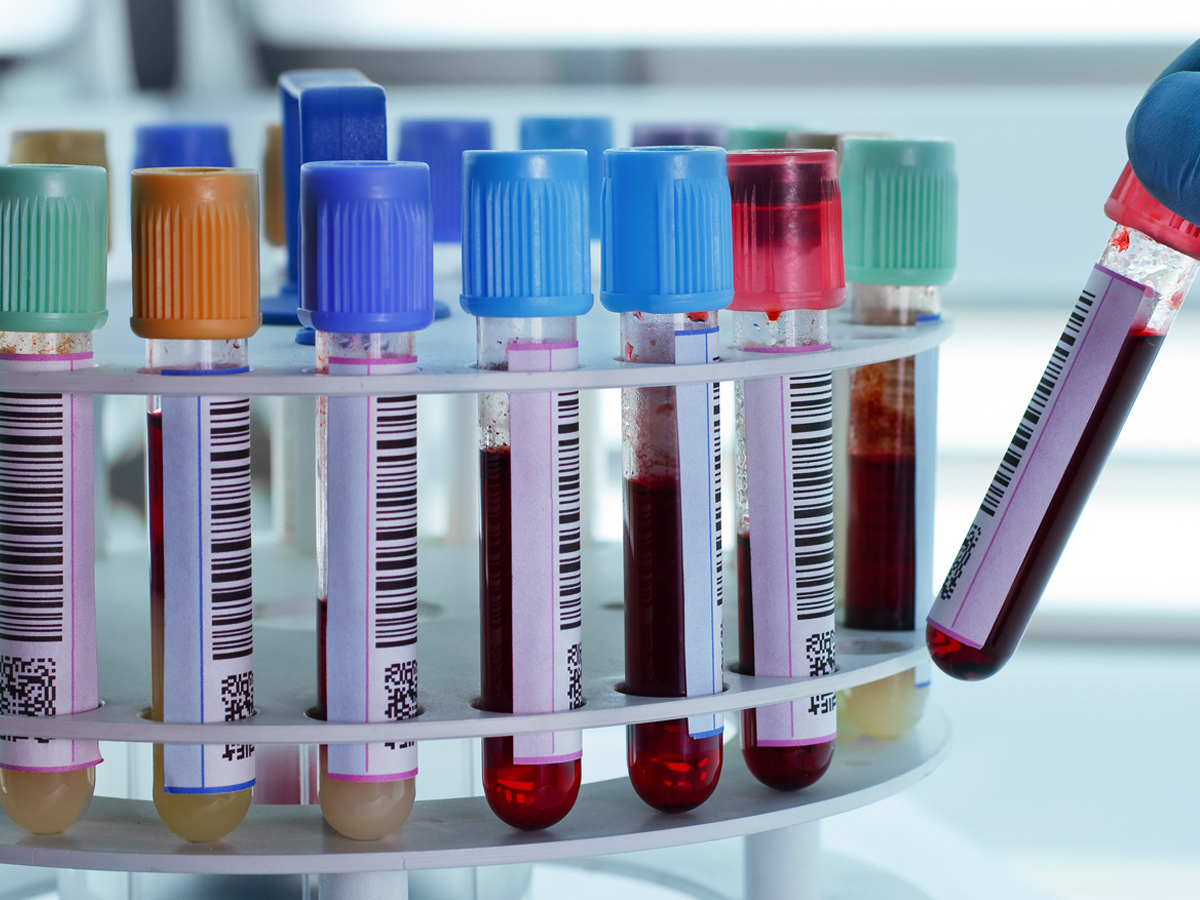Pathological Blood Tests
Pathological blood tests are essential diagnostic tools that provide critical insights into a person's health. These tests help detect infections, monitor organ function, assess overall health, and support disease prevention and management. With advanced technology, we offer accurate and timely results to ensure effective treatment plans with minimal discomfort and risk.
What are Pathological Blood Tests?
Pathological blood tests involve analyzing blood samples to evaluate various health indicators, such as blood cell counts, hormone levels, and organ function. These tests are crucial for detecting diseases, monitoring conditions, and guiding medical decisions for personalized healthcare.
At R.S. Tomer Foundation (Shri Rajveer Singh Tomer Trust), we provide a wide range of reliable and affordable pathological blood tests in Delhi. Our NABL-accredited lab ensures precise diagnosis using advanced technology and expert technicians.
Pathological Blood Tests Price List
Here is a general price list for different types of Pathological Blood Tests. Prices may vary based on location, hospital, and specific test requirements:
1. Modular Biochemistry and Immunology Analyzers
Our modular biochemistry and immunology analyzers provide high-precision results for a wide range of tests. These systems support fast and accurate diagnostic analysis, offering real-time insights into a patient's biochemical and immunological profile.
Common Uses:
- Measure various blood components such as glucose, cholesterol, and enzymes
- Test for immune responses and detect autoimmune conditions
- Evaluate kidney and liver function
2. Real-Time PCR
Real-Time PCR (Polymerase Chain Reaction) is a highly sensitive and specific test used for detecting genetic material, including viruses and bacteria. This technique enables rapid and accurate detection of pathogens and genetic disorders.
Common Uses:
- Detect viral and bacterial infections
- Genetic testing for inherited diseases
- Quantify viral load for conditions such as HIV and Hepatitis
3. GeneXpert
GeneXpert is an advanced molecular diagnostic system that offers fast and accurate testing for a range of infectious diseases. It uses PCR technology to provide results in a fraction of the time compared to traditional methods.
Common Uses:
- Rapid detection of tuberculosis and multi-drug-resistant TB
- Diagnosis of respiratory infections like COVID-19 and flu
- Detection of bacterial infections in critical care settings
4. Automated Blood Culture System
This system automates the detection and monitoring of microbial growth in blood samples, ensuring accurate identification of infections and timely treatment.
Common Uses:
- Identify bacterial and fungal infections from blood samples
- Monitor the effectiveness of antibiotic therapy
- Diagnose sepsis and other blood infections
5. Automated Identification and Susceptibility Testing
This automated system helps identify microbial species and determines their susceptibility to various antibiotics, enabling precise treatment planning.
Common Uses:
- Identify bacteria and fungi from culture samples
- Test bacterial resistance to antibiotics
- Assist in selecting the most effective antibiotic treatment
6. Immunofluorescence Assay
Immunofluorescence assays use antibodies labeled with fluorescent dyes to detect specific antigens, often used for autoimmune disease diagnosis and monitoring.
Common Uses:
- Diagnose autoimmune diseases like lupus and rheumatoid arthritis
- Identify infectious agents in tissue samples
- Monitor organ transplant rejection
7. 5-Part & 6-Part Hematology Analyzers
Our hematology analyzers provide detailed analysis of blood components, including red and white blood cells, platelets, and hemoglobin levels, for a complete blood count (CBC).
Common Uses:
- Diagnose anemia, leukemia, and other blood disorders
- Monitor blood cell counts during treatment
- Evaluate overall health through blood profile analysis
8. Fully Automated ESR Analyzers
The fully automated ESR (Erythrocyte Sedimentation Rate) analyzer measures the rate at which red blood cells settle in a test tube, helping diagnose inflammation and certain autoimmune conditions.
Common Uses:
- Detect inflammation or infection in the body
- Monitor autoimmune conditions such as rheumatoid arthritis
- Assess general health and inflammation levels
9. High-Performance Liquid Chromatography (HPLC)
HPLC is an advanced laboratory technique used to separate and analyze compounds in blood or urine. It is essential for detecting drug levels, hormones, and certain metabolites.
Common Uses:
- Monitor drug levels in the bloodstream
- Detect metabolic disorders and hormone imbalances
- Analyze compounds in body fluids for clinical research
10. Maternal Screening Markers
Maternal screening markers are blood tests performed during pregnancy to assess the risk of birth defects and genetic conditions in the baby, such as Down syndrome.
Common Uses:
- Assess risk for genetic conditions like Down syndrome
- Monitor fetal development and overall health
- Help inform decisions about further diagnostic testing
11. Book Your Blood Test Today
If you need a comprehensive blood test or diagnostic consultation, contact our pathology center for a professional consultation. Our advanced diagnostic tools ensure accurate results and timely insights to support your health and well-being.
For appointments and inquiries, reach out to us today!
Book Appointment